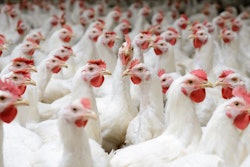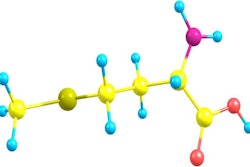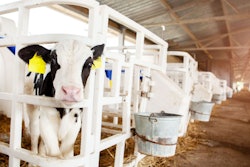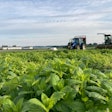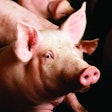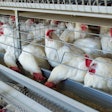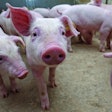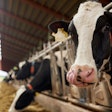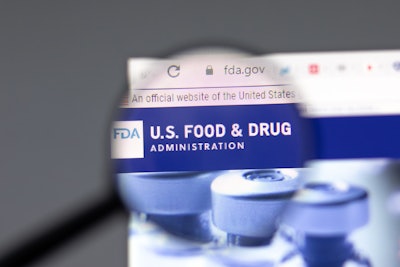
Animal feed industry stakeholders discuss whether some feed ingredients should be classified as food or drug
Animal feed industry stakeholders commented on how the Food and Drug Administration’s (FDA) policy regulating animal feed with drug claims might be updated to reflect evolving scientific knowledge and promote innovation during a virtual public listening session on October 18.
FDA is reviewing the Center of Veterinary Medicine’s (CVM) Policy and Procedures Manual (PPM) 1240.3605, Regulating Animal Foods with Drug Claims. These claims include environmental benefit or production claims and claims about the effects on the animal’s microbiome.
“We recognize some articles in animal diets with these types of claims are currently regulated as animal drugs,” said Timothy Schell, director of FDA’s Office of Surveillance and Compliance. “Our evaluation of our current policy includes whether there could be changes to allow some articles currently regulated as animal drugs to be regulated like animal food. We’d like to underscore our goal of ensuring human and animal safety as well as consistency with current laws and regulations.”
General consensus on issues
Several speakers noted that current regulations put U.S. companies at a competitive disadvantage, put undue time and cost on the process of bringing a product to market, and that some rules are inconsistent and arbitrary.
Alexia Akbay, founder and CEO of Symbrosia, which manufactures a seaweed livestock feed ingredient designed to reduce emissions, said that adjusting the regulation to categorize feed ingredients with environmental benefits as animal feed would modernize the policy without removing necessary safety protocols.
“This modernization will bring transparency, allowing us to reach private, local and global climate goals within the needed timelines,” Akbay said.
She added that the existing framework gives American companies and producers a competitive disadvantage, because their direct competitors in the European Union and Australia have received regulatory approval to sell similar products as a feed ingredient.
Louise Calderwood, directory of regulatory affairs at the American Feed Industry Association, agreed.
“In countries where they are approved, these technologies help farmers be more efficient in the use of land and water and feed, therefore, supporting sustainability efforts to feed a growing global population. Unfortunately, in the United States, the animal food industry and our customers cannot use these technologies due to the policy interpretation laid out by the FDA Center for Veterinary Medicine,” Calderwood said. “These ingredients could be put through the regulatory review process as a new animal drug, but they should not have to. They are clearly feed ingredients and, as has been stated numerous times today, should be regulated as such. Our members tell us they have products approved in dozens of other countries, but they can’t even submit these products for review by the FDA because of policy limitations.”
Ann Begley, secretary and co-general counsel at the Enzyme Technical Association, said a rule change would allow the U.S. to better meet its environmental and sustainability goals.
“Gaining access to production claims that are permitted in most geographies will not only enable U.S. feed producers to provide farmers with animal food and nutritional ingredients responsible for more efficiently produced high-quality food, but it will also spur environmental benefits from farm animal production,” Begley said. “This is especially critical in a time when FDA and other U.S. federal agencies seek to meet the objectives of the One Health Initiative, which recognizes the interconnectedness of human health, animal health and ecosystem health and strives to promote, improve and defend the health and well-being of all species.”
David Fairfield, senior vice president, feed at National Grain and Feed Association (NGFA), said NGFA believes FDA “has latitude to define animal foods that have production benefits for other health benefits as animal food rather than animal drugs.”
“Animal food nutritional technology has continued to evolve,” Fairfield said. “Products currently exist that are safe, and that have scientifically demonstrated production, health and environmental benefits. NGFA believes providing a more efficient regulatory framework to bring these products to market with such claims will benefit the well-being of animals, farmers and ranchers, consumers and the public at large.”
He echoed other speakers’ comments, adding that classifying these products as food rather than drugs would allow them to reach the market sooner; allow for more investment in research, development and innovation; and align its regulatory framework with that of other developed countries.
Marketing and science
Jen Campbell, manager of regulatory affairs for Purina Animal Nutrition, said the current regulation limits companies from providing “necessary and important information about the value of our animal food products” by limiting marketing and labeling materials.
“Under the current policy, animal food manufacturers cannot fully describe the health or performance benefits for many of the ingredients and products they have to offer producers despite years of data confirming the health and/or performance benefits,” Campbell said. “Furthermore, no claims can be made on the safety to humans and animals of these ingredients. This stifles research, and industry is reluctant to start new projects or to develop new products because the cost of development is very high and they cannot communicate the benefits of the products in the market.”
Elizabeth Lewis, who spoke on behalf of FutureFeed and NutraSteward, said that many feed ingredients that are regulated as drugs simply support animals’ normal processes and therefore should be regulated as food.
“Biologically active components influence the normal metabolic processes of healthy animals. They do not mitigate cure, prevent or treat disease. In that respect, they are not drug like in that function. It would be appropriate therefore to regulate these ingredients making secondary claims on such biologically active components in healthy animals within the food framework,” Lewis said. “Feed ingredients have evolved beyond meeting just those primary protein, fat, etc. nutritional needs of the animal, and these feed ingredients play a critical role in influencing the digestion of animals which can favorably affect the environment.”
Several speakers said they believe that products that affect the microbiome should not be considered a drug. This is because, as Kristi Smedley of NOMAD Bioscience and the Center for Regulatory Services explained, the lumen of the gastrointestinal tract is outside the body and the microbiome is a part of the digesta, hence is outside of the body.
“Our request is for the policy and procedure guide to clearly and consistently reflect the substances used to modify the digesta or the intestinal microflora to be regulated as food substances,” Smedley said.
Kevin Korth, director of regulatory affairs at Native Microbials, agreed. The microbiome is “not technically internal, like a heart or the lungs, and therefore changes to the microbiome are not actually the same as a drug modifying an organ,” he said. “The microbiome is part of the digesta found in the lumen of the GI tract which, though it sounds odd to say, is external to the body. Because of that, in essence, drug claims should not be able to be made for the microbiome as it is external to the body.”
FDA will accept electronic or written documents on this topic through November 17. To electronically submit comments to the docket, visit regulations.gov and type “FDA-2022-N-2015” in the search box. To submit comments to the docket by mail, follow instructions on the FDA Virtual Listening Session on the Regulation of Animal Foods with Certain Types of Claims webpage.

